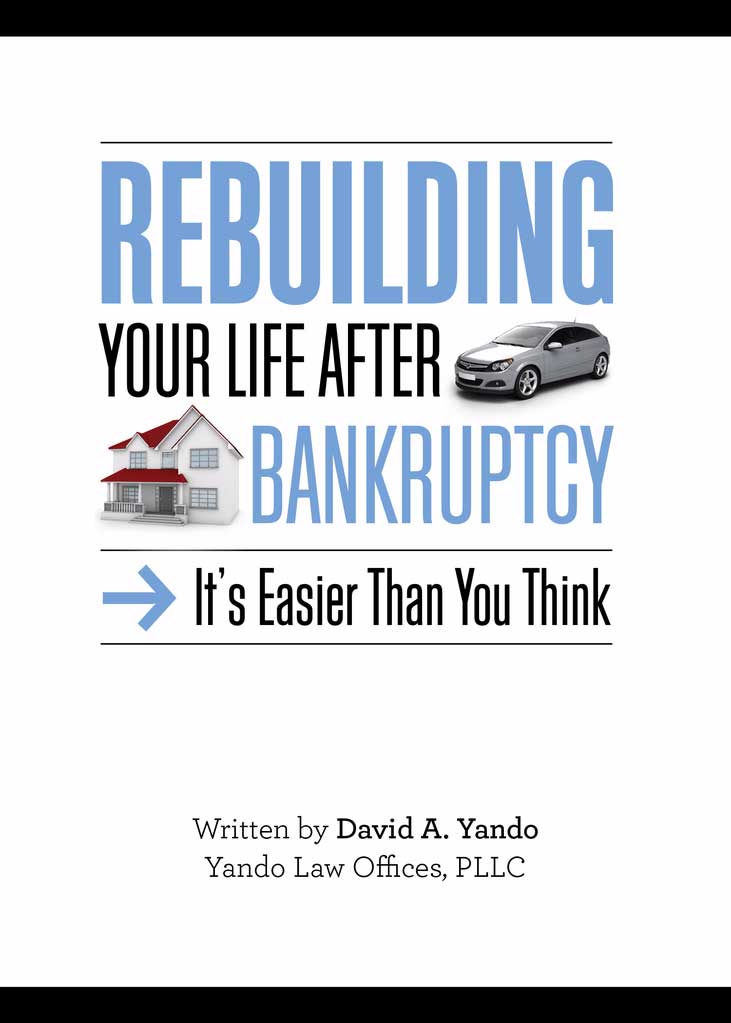Actions to Take After a Bankruptcy
What to Expect After Filing for Bankruptcy in Tacoma and Pierce County
Once you have filed for bankruptcy, you have a fresh start on life. You no longer have the overhanging stress and worry that comes with being in debt and behind on your payments. Instead, you will have a chance to pursue credit restoration and build a strong financial foundation that you may never have thought possible. Many people assume that bankruptcy ruins your credit and prevents you from getting additional loans in the future. Do not believe this or any other bankruptcy myths that you hear! Our Tacoma bankruptcy lawyer at Washington Fresh Start can help to debunk any myths that you’ve heard and can help you look forward to the better life you will live after discharging your debts through bankruptcy.
A Chapter 7 bankruptcy will usually stay on your credit report for ten years. But in general, this does not prohibit you from obtaining new credit and moving on with your life.
In fact, most debtors start receiving new credit card offers shortly after they receive their discharge. Credit card companies realize that you are more likely to pay back your debts after bankruptcy because your discharge probably freed room in your budget and you cannot receive another discharge for many years
When you file under Chapter 7 or Chapter 13 of the U.S. Bankruptcy Code, you will discharge as much of your debts as possible through either Chapter 7 liquidation or a Chapter 13 Wage Earner’s Plan. After a few short years, you can begin rebuilding your credit score by taking out a small loan and / or a secured credit card and staying on top of your payments. Bankruptcy helps you to get a fresh start and move forward to a brighter, more successful future. Don’t let this opportunity pass you by! Here are some basic tips to moving forward after obtaining your fresh start:
- Get better about money. Figure out what has derailed your finances in the past, and take steps to fix the problems. Take a long hard look at your spending habits, and determine if you need to change some of them.
- Create a budget. Take the time to create a budget, and the work hard to stick to it. Pay for things with cash, not credit. Only use small amounts of credit to rebuild your credit history.
- Learn what factors affect your credit score. By learning what will boost or drag down your score, you can make better financial decisions.
- Pay your bills on time.
- Get and use a small amount of credit. Get a small amount of credit and use it responsibly. This will help improve your credit score.
- Variety of credit is good. If you can responsibly handle more than one account, consider getting an installment contract in addition to a credit card. You can apply for a small car loan or personal loan. If you do so, make sure the lender is reputable and borrow only an amount you are sure you can easily pay off.
- Shop around for credit. When you are ready to get credit, shop around for the best terms and rates. Don’t just go with whatever offer arrives in the mail.
- Limit your credit accounts. Stick with one credit card, and perhaps one or two other small loans. If you have trouble with credit, try to have no accounts.
- Monitor your credit report. This is important for anyone, but especially if you are trying to improve your credit. If you see errors or outdated information, take steps to get them removed. You can do this yourself.
- Avoid credit repair scams. Don’t get sucked into paying for credit repair. You can fix inaccurate information yourself. And you cannot legally remove accurate information.
- Finally, make your monthly payments. Here is the kicker, though: don’t pay them off each month. Normally, sound financial advice would tell you to do just the opposite, and that is true for managing your finances and keeping spending under control. You’re not doing that. You are rebuilding your credit. Remember, these companies are gambling on you because they get to charge you more interest rates. Use your new credit card not because you have to, but because you want to. It’s merely a credit-rebuilding tool, nothing more.
Speak with a Tacoma Bankruptcy Attorney Today
The key to a finding financial freedom is to consult a knowledgeable Tacoma, WA bankruptcy attorney who can advise you. Attorney Dave Yando has more than 30 years of hands-on experience in all forms of debt relief, including bankruptcy and loan modifications. Washington Fresh Start can help you determine whether you should file for bankruptcy or choose an alternative option. Contact us right away to take advantage of a free case evaluation and learn how we can help you find financial freedom.

